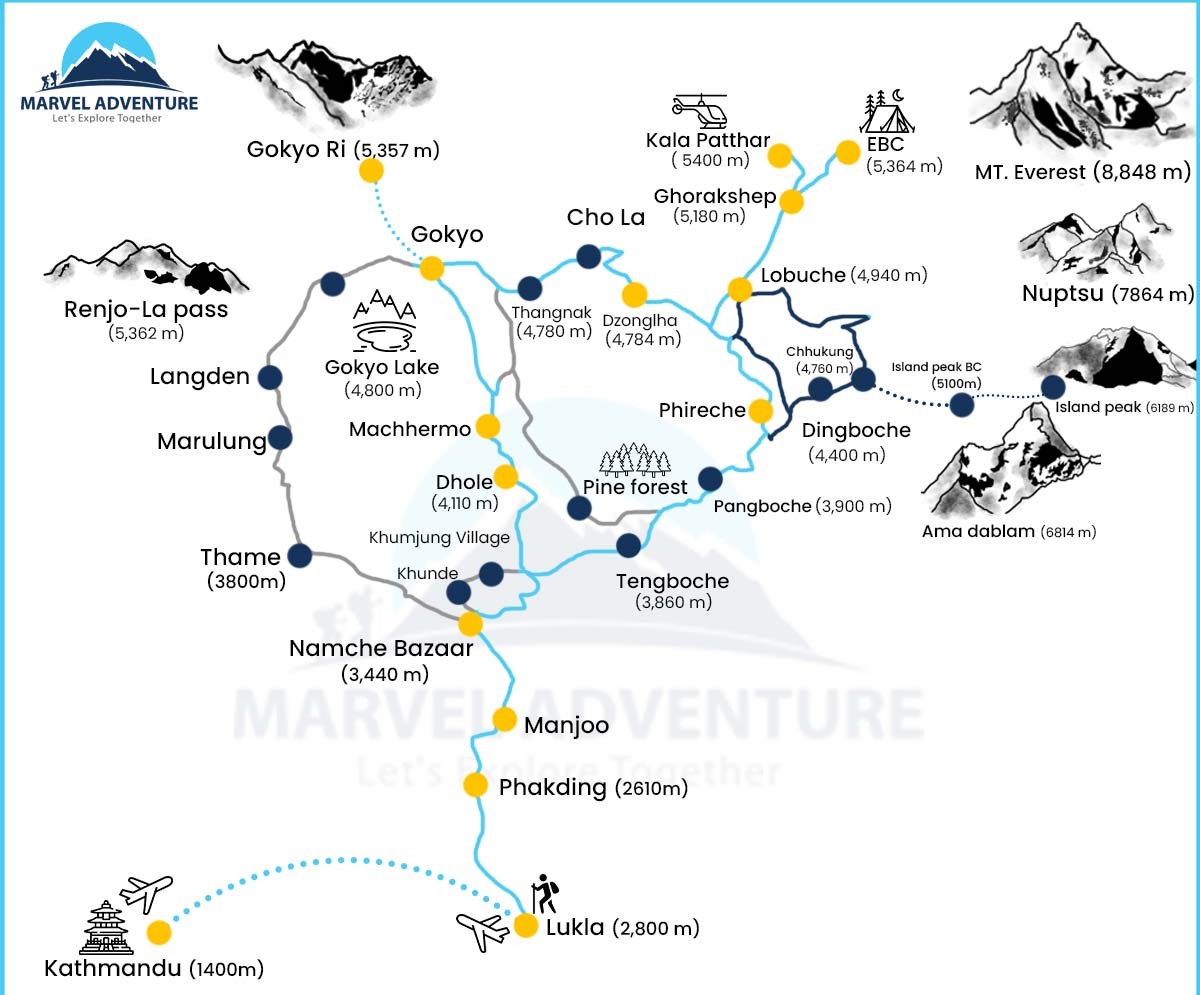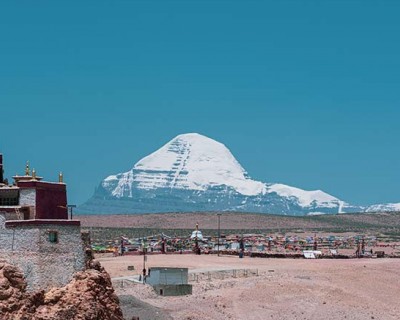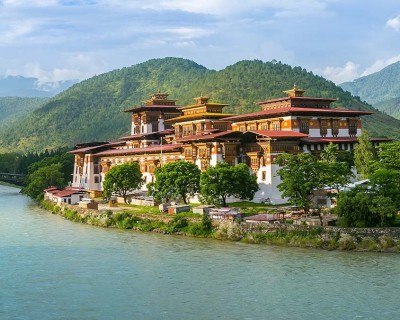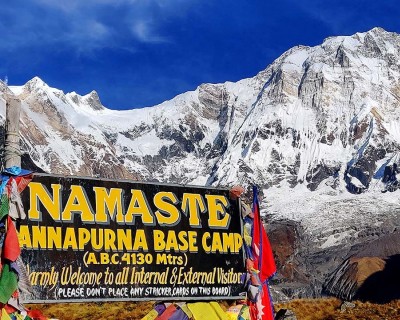Day-by-day Itinerary
This is the itinerary plan of the standard Everest Base Camp and Gokyo Lakes Trek Map that you will follow during the trek. There can be slight variations in the pace and rest stops along the way. However this is the most standard route in the region.
Fly from Kathmandu to Lukla and trekking to Phakding

Kathmandu Elevation: 1,400m/ 4,593ft
Lukla Elevation: 2,800m/ 9,186ft
Phakding Elevation: 2,610m/ 8,562ft
Elevation Gain:1,400m/ 4,593ft
Trek Distance: 6.2km/ 3.8 miles
Trek Duration: 3 hours
Flight Duration: 35 minutes
Trek from Phakding to Namche
Namche Elevation: 3,440m/ 11,286ft
Elevation Gain: 830m/ 2,723ft
Trek Distance: 7.4km/ 4.6 miles
Trek Duration: 6 hours
Rest and acclimatization day at Namche
Namche to Dole
Dole Elevation: 4,200m/ 13,779ft
Elevation Gain: 760m/ 2,493ft
Trek Distance: 11km/ 6.8 miles
Trek Duration: 5 hours
Dole to Machhermo trek
Machhermo Elevation: 4,470m/ 14,665 ft
Elevation Gain: 270m/ 885 ft
Trek Distance: 7/ 4.3 miles
Trek Duration: 5- 6 hours
Trekking from Machhermo to Gokyo Lake

Gokyo Lake Elevation: 4,790m/ 15,715ft
Elevation Gain: 320m/ 1,049ft
Trek Distance: 5.7km/ 3.5 miles
Trek Duration: 6 hours
Morning hike to Gokyo Ri and trek down to Dragnak
Gokyo Ri Elevation: 5,357m/ 17,575ft
Elevation Gain: 567m/ 1,860ft
Trek Distance: 9.5km/ 5.9 miles
Trek Duration: 4- 5 hours
Trekking to Dzongla via Cho La Pass
Dzongla Elevation: 4,800m/ 15,748ft
Cho La Pass Elevation: 5,420m/ 17,782ft
Elevation Gain: 720m/ 2,362ft
Trek Distance: 16km/ 9.9 miles
Trek Duration: 6- 7 hours
Dzongla to Everest Base Camp via Gorakshep

Gorakshep Elevation: 5,180m/ 16,994ft
Everest Base Camp Elevation: 5,364m/ 17,598ft
Elevation Gain: 564m/ 1,850ft
Trek Distance: 18.3km/ 11.37 miles
Trek Duration: 7- 8 hours
Hike to Kalapatthar and trek to Pheriche
Kalapatthar Elevation: 5,644m/ 18,517ft
Pheriche Elevation: 4,200m/ 13,945ft
Elevation Loss: 1,444m/ 4,737ft
Trek Distance: 9.6km/ 6 miles
Trek Duration: 5- 6 hours
Trekking from Pheriche to Namche Bazaar
Namche Elevation: 3,440m/ 11,286ft
Elevation Loss: 760m/ 2,493ft
Trek Distance: 14.3km/ 8.8 miles
Trek Duration: 6- 7 hours
Namche Bazaar to Lukla

Lukla Elevation: 2,800m/ 9,186ft
Elevation Loss: 640m/ 2,099ft
Trek Distance: 13.5km/ 8.3 miles
Trek Duration: 6- 7 hours
Flight to Kathmandu from Lukla
Kathmandu Elevation: 1,400m/ 4,593ft
Elevation Loss: 1,400m/ 4,593ft
Flight Distance: 139km/ 86.3 miles
Flight Duration: 35 minutes
Trek Difficulty
Everest Base Camp and Gokyo Lakes are two of the moderate level treks in the eastern part of the Himalayas. If you are worried about whether this trek is suitable for you or not, you can rest assured that just basic fitness is quite enough to comfortably this popular trekking route.
However, you will need to put enough effort during the preparation to ensure an enjoyable and memorable trip. The total trekking distance of this trek is around 112 km (70 miles). Similarly, you will push for the maximum altitude of 5,644 meters (Kalapatthar) in the trekking route.
That’s why even if this trek is listed in the moderate class, you shouldn’t underestimate it. There isn’t any fitness level set for this trek nor there are any kind of age restrictions. So, if you are determined to complete this journey and won’t mind the physical training, you will be able to complete it with ease.
Gain Insights On:
Best Time to Trek

For the best experience while doing this duo highlight adventure you should consider the high seasons such as spring (March- May) and autumn (September- November). Both of these seasons are considered to be the ultimate period to make the best out of your Himalayan journey.
Spring is famous as the season of nature, and the allure of mother nature is at its peak during this period. You will be able to follow the scenic trekking route that is adorned with rhododendrons and other colorful flowers. Similarly, the lush greenery takes over the landscape all the way to the alpine meadows.
The babbling streams, waterfalls and rivers fueled by the melting snow under the colorful setting of nature make your adventure a truly magical experience. Like spring, autumn is another popular season for Himalayan trekking adventures in Nepal and is primarily beloved for its stable climatic conditions.
Besides the stability and pleasantry of the weather, this season also boasts the beauty of the fall landscape mingling with the shades of grey, yellow, green and red which is truly a visual treat. Similarly while trekking in this season, you will be accompanied by the the dry and comfortable trails. The vistas under the clear skies are also exceptional and the festive atmosphere adds color to your journey.
Permits and Regulations
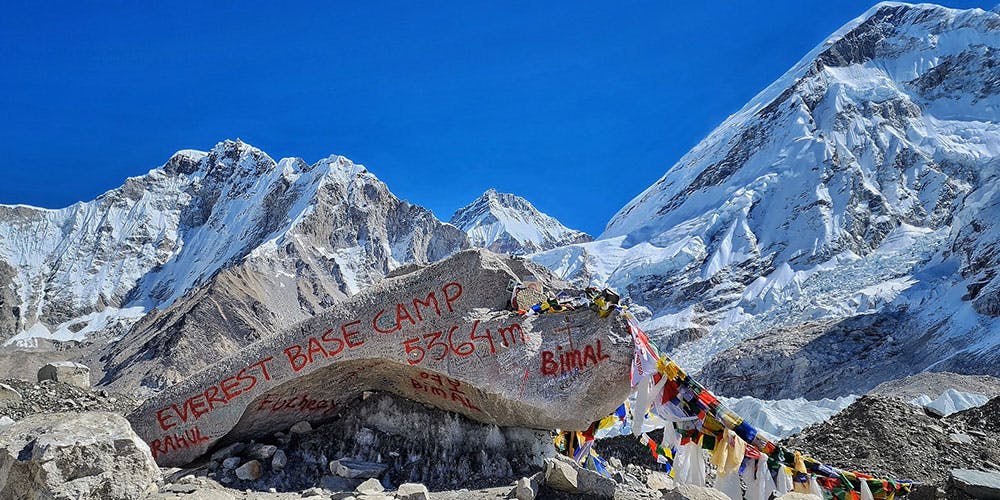
To follow the Everest Base Camp and Gokyo Lakes Trek Map, you will have to collect a total of two permits. As the trekking trails pass across a protected national park and a restricted area in the region, these two permits are absolutely mandatory for this trek.
Necessary Permit for Everest Base Camp and Gokyo Lakes Trek
- Sagarmatha National Park Permit— US$ 30 pers person
- Khumbu Pasang Lhamu Rural Muncipality Permit— US$ 30 per person
You can acquire the national park permit at either the tourism board office of Kathmandu or the park counter in Monjo. However, the rural area municipality permit is only issued in the Everest region, i.e., Lukla and Monjo.
In order for you to enjoy the trip without any glitches, Marvel Adventure will collect all the required permits for the journey on your behalf. You will just have to provide us with the required documents such as copies of your passport, copies of your visa, passport sized photographs, etc.
Note: These are the general permits required for navigating the standard Everest Base Camp and Gokyo Lakes Trek Map. If you are following the traditional route map from Jiri, you will also need to get a Gaurshankar Conservation Area Permit (costs US$ 30 per person).
Accommodation
The Everest region is a mainstream trekking destination in the Nepali Himalayas. Thus, you can enjoy a wide range of accommodation facilities available while moving along with the Everest Base Camp and Gokyo Lakes Trek Map. There are primarily three types of accommodation modes that you can pick from during your trek:
The standard trekking packages will get you accommodation facilities at teahouses. As for the lodges, they are more of a premium accommodating option on the trail and are included in the luxurious trekking packages.
Tenting options is also available in this mainstream route if you are looking for a distinct experience. However, as the porter will have to carry all the necessary equipment from the starting point, this accommodation mode can be slightly costlier.
Note: If your package handles all your itinerary plans throughout your stay in Nepal, for your stay in Kathmandu, you will enjoy the accommodation facilities of a star hotel with all the modern amenities.
Food and Water

As your Everest Base Camp and Gokyo Lakes Trek Map follow the trekking route in a mainstream destination, you will be able to find a diverse range of menus at the teahouses. The teahouse trekking experience is famous for its enriching experience where you will get to admire the lifestyle, traditions and culture of the natives.
Thus, you will be able to taste a wide range of cultural delicacies on this mainstream route. The food menus available at the teahouses in the Everest region primarily consist of Sherpa and other cultural delicacies. Similarly, Tibetan, Indian and several Western menus are also available at the teahouses throughout the route.
As for water, you are not recommended to buy water bottles due to their adverse impact on the environment. You can either buy the boiled water at the teahouses or our guides will fill your bottles at the clear water station. However, make sure to purify the water before drinking it.
Note: It will be best to avoid meat items at higher altitudes considering the health factors. Due to a lack of a proper transportation chain, the meat items stored at higher altitudes are not fresh.
Preparation and Packing
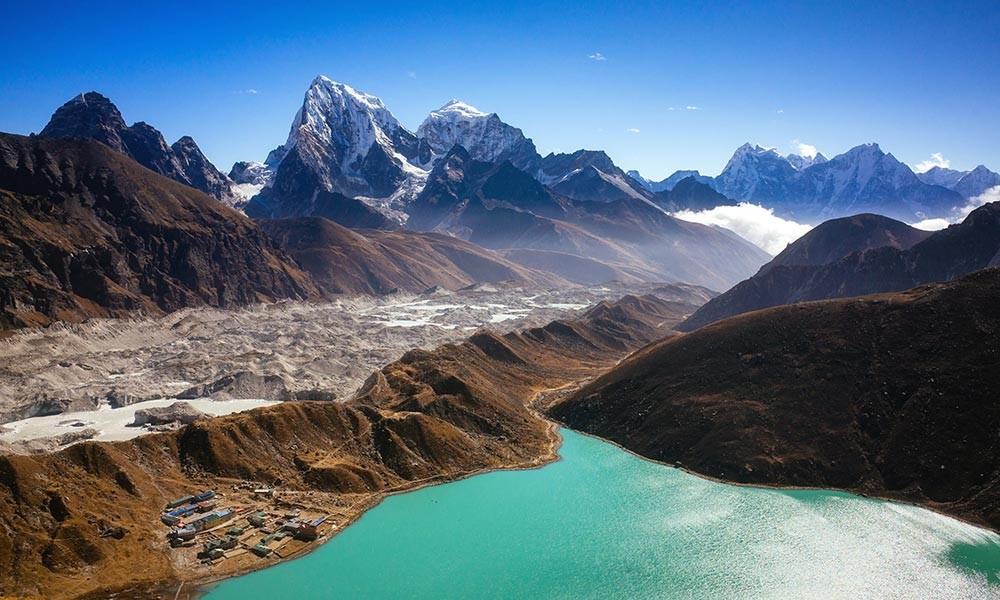
Physical Fitness
In order to comfortably move along with the Everest Base Camp and Gokyo Lakes Trek Map, you should consider an adequate level of training. Due to high altitude nature of the adventure and rugged trail, your physical strength will be tested by this route. That’s why you are recommended to train at least 3 to 6 weeks for the trek.
If you are wondering about how you should prepare an efficient training program. Your major focus should be on strength and endurance level. These aspects will determine how comfortable your overall trek will be. Similarly, you should also consider cardiovascular and stamina exercises that will help your body to adapt to new altitudes quite easily.
For this trek basic fitness is quite enough, so you don’t have to aim for a top physique condition. Just stay consistent with the training and gradually improve your abilities to make up for the physical demands of the trail.
Note: For a better understanding of your physical aspects and to come up with an efficient training program, you can consult with a guide or professional trainer or you can do some practice hikes on hills near you.
Packing List
Following the standard Everest Base Camp and Gokyo Lakes Trek Map will take around 13 days. Thus, it is important to pack all the essentials that you will need for the long journey in the Himalayas. For an optimum packing list, you need to understand the seasonal and climate variations.
For instance, if you are trekking during spring and autumn, which are regarded as the ideal period for outdoor explorations. You will not need to go excessive with the packing as the weather conditions in both of these seasons are stable. Just general clothes, buff, boots, helpful equipment, etc will be enough for your adventure in these seasons.
As for the off periods for trekking such as winter and monsoon, you will need to prioritize season specific layers such as insulated layers, boots with good traction, waterproof outer layers, micro spikes, rain cover, etc. Thus, you have to understand the weather and trail conditions of the season of your preference to pack efficiently.
Similarly, the climatic zone variation is also an important thing to note for your high altitude trek. Your trek will start at Lukla (temperate zone) and you will reach the maximum altitude point at Kalapatthar (trans Himalayan zone). So, the climate is warm and cozy at the lower part of the trails. However, as you ascend to higher altitudes the temperature starts to drop gradually.
Altitude Sickness
Acute Mountain Sickness (AMS) is a concerning factor while doing high altitude treks. Although it is not a deadly condition, it can still be bothersome while you are trying to enjoy your adventure. So it is important to prepare for this factor of trek difficulty and follow appropriate precautionary methods.
In overall, during these two highlight explorations of Everest region, you will gain an approximate altitude of 2,844 m/ 9,330ft (start point Lukla and highest point Kalapatthar). To mitigate any kind of risk related to altitude sickness Marvel Adventure will follow all the safety precautions necessary.
Each of our trekking adventures has been designed with a slow paced walking strategy. This will give your body a chance to acclimatize to rising altitudes even at the trekking trails. Similarly, you will also get sufficient resting period along the way and won’t have to push your body to its limit.
Note: For an effective acclimatization, you are recommended to drink enough fluid, eat a balanced diet and get enough rest. Avoid cigarettes, caffeine and alcohol during the high altitude part.
Safety Consideration

As this is a high altitude trek that takes you to an isolated part of the region, safety considerations should be your top priority. You should stick with the guidelines and suggestions of your guides to explore the region in a safe manner. It is also important to get travel insurance for high altitude treks in Nepal.
The insurance plan will provide coverage for medical assistance, handle cancellations, take care of lost luggage, cover medical evacuations, etc. Thus, getting travel insurance is a safe way to do your Himalayan adventure feeling assured.
If you are doing this exciting trek with Marvel Adventure, we will take care of all your safety details. Your guide will take care of your safety, health and well being throughout the trek. The guiding crew will check your health conditions throughout the trip and also monitor how well you are properly adapting to the rising altitudes.
Thus, there isn’t anything that you have to worry about while doing this high altitude trek with us. You can just rest assured and just enjoy the journey leaving the safety details to us.
Tips for a Successful Trek
- Do your trek with reputable agency that has expertise in the region
- Select the package with slow paced walking and enough acclimatizing period
- Pack smart and don’t burden yourself with excessive luggage
- Strictly follow the safety precautions and guidelines, and consult with your guide first before going out on a self exploration
- Eat a well balanced diet and stay hydrated
- Stay positive and keep yourself motivated
- Monitor your health condition and keep an eye out for symptoms of altitude sickness
- Be flexible and practice leaving your comfort zone
- Respect the environment and local culture
